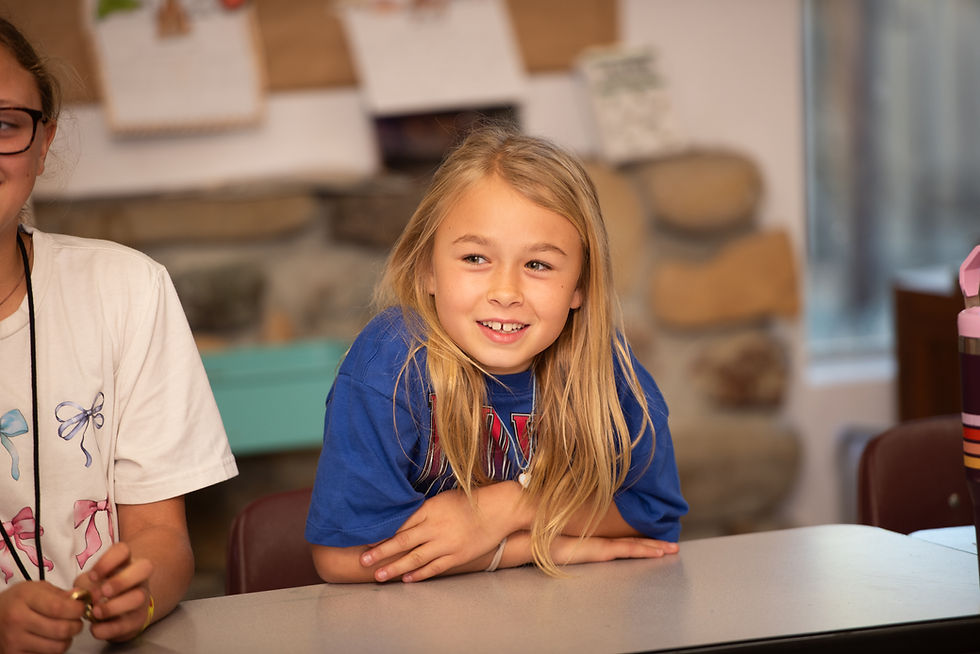The Elements of A School’s Success
- Leanne Elliott
- Aug 11, 2024
- 4 min read

Until a few years ago, the measure of success for any one school was in large part marked by the success of its students. The markers were heavily based on test scores and student retention, but beyond that, there was no reliable metric for measuring a school’s success.
While the students themselves are an excellent barometer of how a school serves its students and families, the Learning First Alliance (LFA) wanted to do better. This coalition of the 12 major education organizations, including the National School Board Association, spent more than a year compiling research and best practices, resulting in a compendium, “The Elements of Success: 10 Million Speak on Schools That Work.”
While the study was elaborate, the results were boiled down into six elements that represent a multi-faceted and coordinated effort to maintain a healthy and high-functioning environment that serves the student population in the highest capacity. The result of the study was designed to provide educators, policymakers, and the public with a platform on which they can come together to create expectations and systems that support across-the-board success for schools in America.
At SYV Family School, we found the results of this study to be a compelling confirmation of how we’re already designed to meet the needs of our students and families. In reading through the list, we found that the descriptions of these elements could be taken straight from our own values, guidelines, and by-laws already in place.
This was an exciting discovery! And so, we share the recommendations of the LFA’s 6 elements in their entirety here, so you can consider how we’re doing in service to our community, that is, the families that make up our student body.
On that note, please allow us one small disclaimer as you read ahead: while we strive to meet these six elements, there are certain limitations in being an intentionally small school. For instance, our current ability to meet ALL learning styles does not equal that of a public school. We ask that you keep in mind the scale of our outreach, the size of our community, and the depth of our resources as you consider these elements of success.
Focus on the Total Child
Successful schools support all students’ needs, inside and outside the classroom, to help them become effective, empowered learners. They design and carry out programs that offer all students a rich educational experience, supporting their academic and social/emotional learning so they develop the skills needed to succeed in an ever-changing environment. These schools customize learning to individual students, taking advantage of advances in technology as they do so. They also provide opportunities for students to explore careers and nurture their talents and interests, including through partnerships with their communities.
Commitment to Equity and Access
Successful schools ensure all students have access to high-quality services and supports enabling them to set and reach high goals for learning. In these schools, equity does not mean equality; they recognize some students need additional resources to have the same opportunity for success as others. They ensure the needs of all student populations are met, including English language learners, students with disabilities, children of color, religious minorities, LGBTQ students, and others. Successful schools recognize such students are assets and diversity is a strength.
Family and Community Engagement
Successful schools effectively engage families and communities in support of students. In doing so, they identify barriers to such engagement and work to overcome them. Their efforts to build authentic connections to families are focused on a belief that every parent wants the best for their child and, when provided the right invitations and opportunities, they can help their child, and all children, be successful.
Distributed Leadership
Successful schools define leadership broadly. Leadership is distributed — to principals, teachers, school counselors, community members, and others in the building — and decision-making is a shared endeavor. In these schools, leaders (regardless of job title) meet high standards of practice and are supported in their development. They understand that effective communication is a critical component of school success, and they build solid, trusting relationships with both school and community stakeholders.
Strong, Supported Teaching Force and Staff
Successful schools are staffed with educators — including teachers, principals, school counselors, technology specialists and others — who are well-educated, well-prepared and well-supported. These educators meet high standards of practice. They benefit from continuous learning and support along the professional continuum, including through high-quality preservice education, ongoing high-quality professional learning, meaningful evaluation tied to professional growth, and opportunities to take on leadership roles regardless of official title.
Relationship-Oriented School Climate
Successful schools create a culture of collaboration and shared responsibility among staff and students and with families and communities. These schools are safe, welcoming, and respectful to all. They establish teaching and learning as core values. They support positive behavior and build healthy, supportive relationships and a sense of community both between and among students and staff. In them, students have frequent opportunities for participation, collaboration, service, and self-direction, all strengthening their connection to the school.
Atoms of a Molecule
The most critical factor is the interaction between the elements — they are not interchangeable.
As we continue to strengthen and grow as a community, your voice and input become part of the web of our strength. We look forward to hearing your thoughts and ideas about these elements of success, as we strive for a stronger community that serves its members.
For more information on the SYV Family School, please visit https://www.syvfamilyschool.org/ and follow along to see what’s happening around campus on our IG @thesyvfamilyschool.









Comments